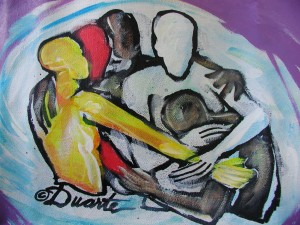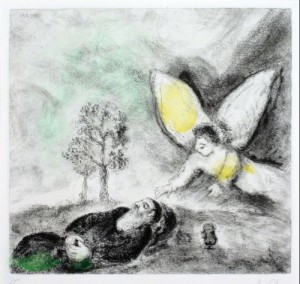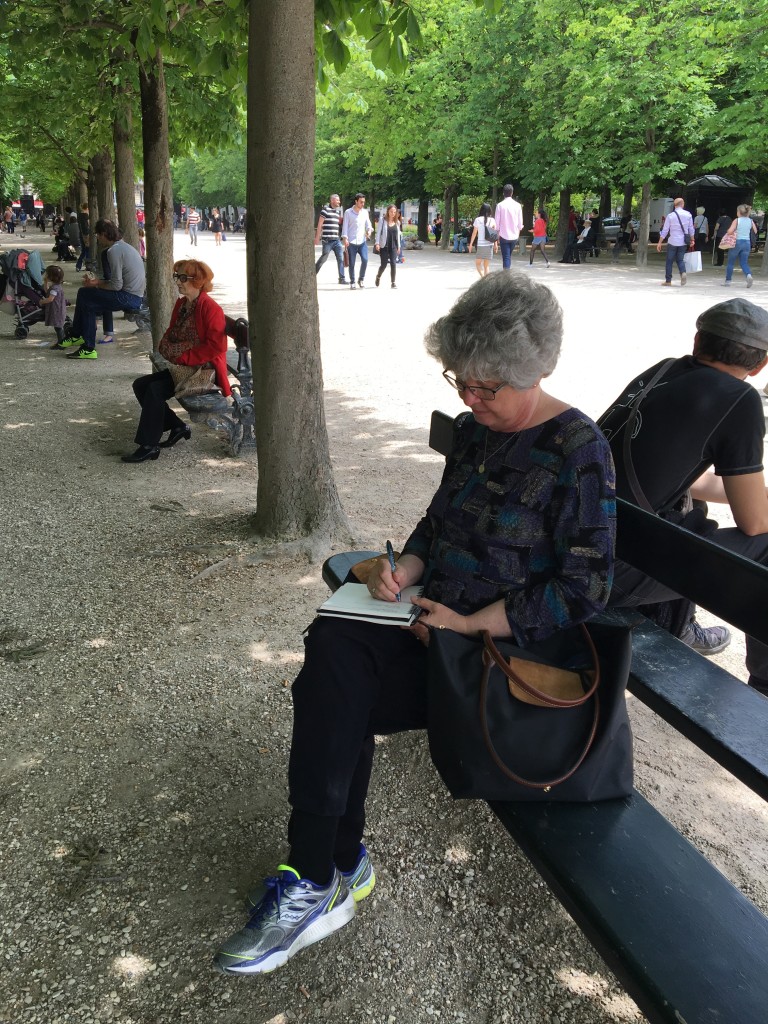
Photo: Mary van Balen
Writing in Jardin du Luxembourg
Originally published in The Catholic Times June 16, 2016
I’ve recently returned from a wonderful vacation of almost a month in Paris with two of my daughters, one of whom is doing research at the National Natural History Museum there—a perfect reason to visit. Spending so much time with adult daughters is a gift itself. Doing it in Paris? Well, that made it extraordinary.
We did the usual tourist things, visiting museums and landmarks, enjoying Parisian baguettes smeared with butter or jam, and drinking lots of café. A highlight was making the short trip to spend a day at Giverny and Monet’s garden, a lifelong dream of my youngest.
Standing in the oval rooms of Musee de l’Orangerie surrounded by the giant water lily canvasses was breathtaking. I don’t think it makes any difference which you do first, visit the garden or feast on Monet’s paintings, the experiences enrich one another. Musee d’Orsay, a favorite, required two visits.
Art and music are everywhere, not only in museums but in shops, cathedrals, and along the streets. Beauty heals, whether in a painting or in the care taken with displays of pastries and breads for sale. Once, on our way to an evening concert, we were surprised by a woman singing an aria. Speakers provided the music, and her powerful voice poured through the small street. A trio on military patrol, heart-stirred by the song like the rest of us, paused, and one lifted his iPhone to record the sound.
We became accustomed to hearing a classical pianist playing Chopin on Pont Saint-Louis near Notre Dame, someone playing accordion along a strip of small restaurants, or jazz groups entertaining on street corners. In every case, people stopped to listen, sometimes to dance. Always, music stirs the soul.
I was grateful for the length of our stay. A friend commented on one of my posts saying he was glad I had time to spend enjoying “holy leisure.” A sense of the importance of befriending “holy leisure” is wisdom that came home with me. The temptation, vacation or not, is to try to do too much. In Paris, there was always another amazing museum to visit or landmark to see. What would friends say when you returned if you told them you didn’t visit the Louvre?
We could pack every day, allowing vacation to become a check list. We chose otherwise. While our list of things to see and do was long enough, we gave ourselves days to do nothing special and simply be present to the gifts of the moment and each other.
My daughter made time to paint. Sometimes we walked to a park and she set up on a bench. Other days, the dining room table worked. I journaled, wrote blog posts, and finally figured out how to sketch the lovely green table umbrellas at Luxembourg Garden. We wended our way to our favorite street, Rue Mouffetard, sat in a café and enjoyed starting (or ending) a day slowly. Some of the best times were sitting or walking wherever, all three of us, enjoying each other’s company.
Back home, events and places are different, but schedules and expectations can be as demanding. There is work to do, family and friends to see, events to attend. But I returned determined to enjoy little things, listen to more music, and be attentive to Spirit movements in my heart.
One afternoon, after preparing dinners for the week to come and catching up on vacation laundry, I walked outside and tossed cans and jars into the recycling bin. The air was particularly clear after a rain, and as anyone in central Ohio with asthma knows, that is something to celebrate. Back in the kitchen, I started to wash up the dishes, then remembered Paris. “No,” I thought responding to the lift I had felt, “Enjoy.”
I poured a glass of iced tea and sat in the plastic lawn chair on my porch. That’s it. I sat and looked and breathed air that felt good in my lungs. A hummingbird buzzed in over my shoulders and headed toward a green patch of ground cover looking for blooms. A sparrow hopped out from underneath a bush with a huge piece of fuzzy fluff in its beak. The breeze picked up and leaves on the trees across the street danced.
A short prayer of thanksgiving. Some quiet moments of remembering that I live in God’s presence.
The truth that we meet God in the present is nothing new, but deceptively simple. In Paris, at home, anywhere.
© 2016 Mary van Balen



 The poem is “Roses.” Oliver writes of the quest to answer life’s “big questions” and decides to ask the wild roses if they know the answers and might share them with her. They don’t seem to have time for that. As they say, “…we are just now entirely busy being roses.”
The poem is “Roses.” Oliver writes of the quest to answer life’s “big questions” and decides to ask the wild roses if they know the answers and might share them with her. They don’t seem to have time for that. As they say, “…we are just now entirely busy being roses.”


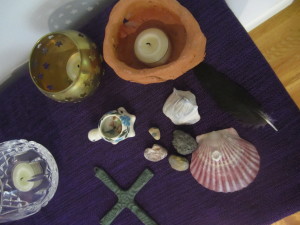





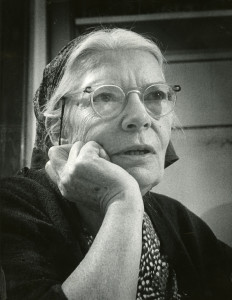
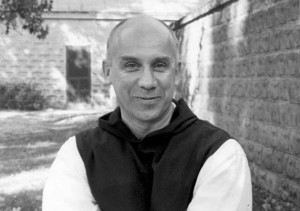 Pope Francis also recommended Merton’s openness to God in a contemplative style of prayer. Merton in the midst of a world immersed in “noise” of all types—digital, visual, aural—pouring out of players, electronics, out of the depths of our souls, calls us to quiet presence. For those who fill up every moment with activity and distraction, he says, “Be still. Listen.”
Pope Francis also recommended Merton’s openness to God in a contemplative style of prayer. Merton in the midst of a world immersed in “noise” of all types—digital, visual, aural—pouring out of players, electronics, out of the depths of our souls, calls us to quiet presence. For those who fill up every moment with activity and distraction, he says, “Be still. Listen.”
